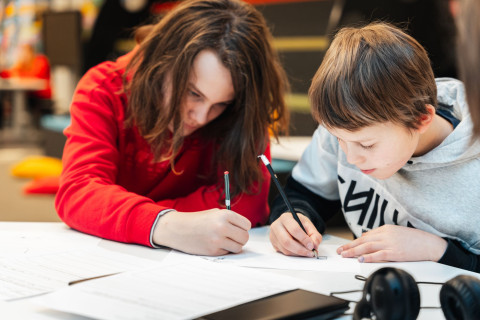Motivational factors, such as pupils’ perception of their own competence and interest in the subject, are important when learning mathematics. However, on average both these factors appear to decline during the sixth grade. The changes are also strongly linked to each other: as self-concept decreases, interest also declines and vice versa. Although individual variation is apparent, neither previous mathematics competence nor gender seem to predict these changes in motivation. The results indicate that it is important to support the motivation of all pupils regardless of their level of competence or gender. When teaching mathematics, teachers should consider how to best support pupils’ self-concept and interest.
These were the results of a recently published study that investigated the links between the mathematics self-concept and individual interest of sixth grade pupils in primary school. The study lasted for nearly an entire school year. The pupils’ mathematics motivation was measured three times during the school year. Achievement in mathematics was also assessed by means of teacher-reported grades and tests of basic mathematics skills. The results were compared between two teaching conditions: the solo teaching group taught by individual class teachers and a co-taught group in which pupils were taught by pairs consisting of a class teacher and a special education teacher.
Better grades in co-taught classes
Co-teaching refers to a situation in which teaching is completely shared by two or more teachers. In this study, co-teaching also meant cooperation between two teachers when teaching a single group in which the number of pupils corresponded more or less to normal class size. The teachers therefore have more time to work with and support different learners and improve the quality of teaching through close cooperation.
Changes in mathematics self-concept and interest did not differ between the solo-taught and co-taught classes. However, pupils in the co-taught group received better grades at the end of the school year. Although there were no differences in test performances between these groups, the pupils’ mathematics competence appeared to improve as a result of co-teaching. On the other hand, this may also be due to differences in assessment. For example, teacher assessment in the co-taught classes may have been more diverse or accurate than that of solo teachers.
Further research is needed
Previous research has shown that teachers have quite positive experiences of co-teaching. However, it would be important to study the topic further in the future, especially from the perspective of pupils. In addition to the perspectives provided by this study, it would be beneficial to understand how co-teaching is linked to other motivation factors, such as how pupils perceive their learning environments.
International surveys and studies indicate that the mathematics motivation of young people declines, especially during the lower secondary grades. However, there has previously been less information available about these changes and their links in relation to primary school. In addition to the results obtained, it is now important to examine how pupils’ competence and motivation can best be supported through different methods of organising teaching.
Article details:
Lehikoinen, H., Väisänen, P., Havu-Nuutinen, S., Lappalainen, K. & Niemivirta, M. (2024). Developmental relations between mathematics self-concept, interest, and achievement: A comparison of solo- and co-taught classes. Instructional Science. https://doi.org/10.1007/s11251-024-09678-4
Further information: Doctoral Researcher Hans Lehikoinen, hansl@uef.fi
MoLeWe research group website: Motivation, learning, and well-being (MoLeWe UEF) - UEFConnect


